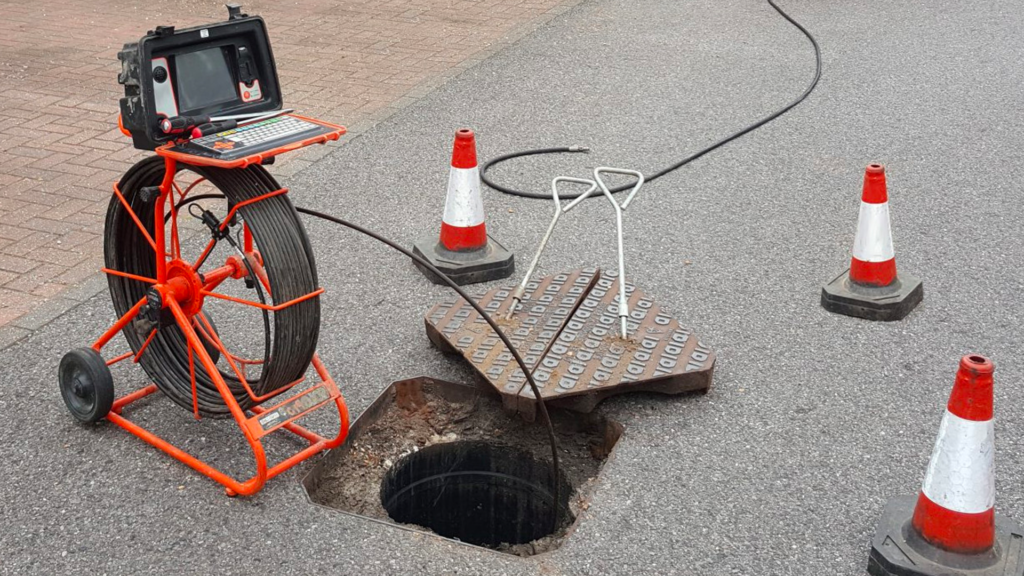The Main Principles Of Reclaim Waste
The Main Principles Of Reclaim Waste
Blog Article
Reclaim Waste - An Overview
Table of ContentsThe Buzz on Reclaim WasteReclaim Waste - TruthsNot known Incorrect Statements About Reclaim Waste Reclaim Waste Fundamentals ExplainedNot known Facts About Reclaim Waste
Check out the types, occurrences, and kinds of fluid waste. Domestic sewer waste refers to the waste and items from a household septic container. This sort of waste is developed by people in houses, colleges, and other structures. This only includes septic tanks that have a drain area. The appropriate management and disposal of residential sewage waste need fluid waste to be transferred to a sewage treatment plant where the correct techniques and devices are related to purify and deal with waste.
Industrial waste frequently consists of potential threats, such as combustible materials or a mixture of fluid and strong waste items, and calls for a much more advanced and comprehensive disposal procedure. The disposal of business waste normally involves the filtration of waste before transport to make certain safe and proper disposal. Industrial waste is produced from results and drainage of commercial processes and production.
This type of waste can not make use of the very same sewer management transportation or processes as septic or industrial fluids. The commercial waste management procedure requires the examination and testing of liquid waste before it undertakes the disposal procedure (industrial wastewater treatment). Runoff waste is the liquid waste that comes from runoff and excess stormwater in highly populated areas or cities
Overflow waste can cause contamination and flooding if not handled correctly. Discover more about sewer cleaning and waste administration. Ensuring correct waste monitoring can protect against calamities and lower ecological damage. Both individuals in residential setups and specialists in industrial or production industries can take advantage of recognizing the procedures and policies of liquid waste management.
Our Reclaim Waste Statements
Contact PROS Solutions today to find out about our waste management and disposal solutions and the correct methods to look after the liquid waste you create.
(https://reclaim-waste-48112599.hubspotpagebuilder.com/reclaim-waste/expert-liquid-waste-removal-and-disposal-services-your-complete-guide)Do you understand what happens to your water when you disengage, flush the toilet or drain pipes the cleaning device? No? Well, it deserves understanding. This so-called 'wastewater' is not just an essential resource but, after therapy, will be launched to our land, waterways or the sea. Used water from commodes, showers, baths, kitchen sinks, washings and industrial procedures is called wastewater.

water made use of to cool equipment or clean plant and equipment). Stormwater, a type of wastewater, is runoff that streams from farming and urban locations such as roofs, parks, yards, roads, paths and seamless gutters into stormwater drains pipes, after rainfall. Stormwater flows unattended directly to regional creeks or rivers, eventually reaching the ocean.
The 45-Second Trick For Reclaim Waste
In Queensland, many wastewater is treated at sewage therapy plants. Wastewater is transferred from domestic or industrial sites through a system of sewers see here and pump stations, called sewerage reticulation, to a sewage treatment plant. Regional governments develop, preserve and run most sewer therapy plants. Operators are licensed under the Environmental Protection Act 1994 to discharge cured wastewater at an appropriate ecological requirement into rivers.
The Division of Natural Resources suggests city governments regarding managing, operating and maintaining sewerage systems and therapy plants. In unsewered locations, regional governments may require owners to mount specific or family sewage treatment systems to treat residential wastewater from commodes, kitchen areas, washrooms and laundries. The Division of Natural Resources authorizes making use of home systems when they are proven to be reliable.
In some brand-new neighborhoods, therapy of some stormwater to eliminate litter, sand and crushed rock has started using gross toxin traps. Wastewater therapy happens in 4 stages: Eliminates solid issue.
Wastewater then moves into big containers where solids work out and are gotten rid of as sludge. Grease and scum are skimmed from the surface area. Uses small living microorganisms referred to as micro-organisms to damage down and remove staying liquified wastes and fine bits. Micro-organisms and wastes are included in the sludge. Removes nitrogen and phosphorus nutrients that might create algal blooms in our waterways and intimidate aquatic life.
The smart Trick of Reclaim Waste That Nobody is Discussing
Nutrient removal is not available in any way sewer treatment plants because it requires expensive specialised equipment. It is becoming much more common in Queensland. Clear liquid effluent produced after treatment may still contain disease-causing micro-organisms. If this effluent is released right into waterways such as rivers or the sea, the micro-organisms will eventually die out.

This typically means wastewater needs to be dealt with or pollutants removed before it can be released to waterways. Most wastewater moves right into the sewerage system. Under the Act, city governments carry out authorizations and licences for eco appropriate activities (Periods) including wastewater releases that may have a local impact. The division administers authorizations and licences to Periods including wastewater releases that could have a regional or statewide influence.
The Greatest Guide To Reclaim Waste
Or else, samples are considered research laboratory analysis. Commonly many examinations are required to develop the levels of each of the different contaminants such as oils, hefty steels and chemicals in water. Monitoring offers accurate details about water quality and can verify that licence problems are being fulfilled. The details gotten through monitoring provides the basis for making water top quality choices.
Report this page